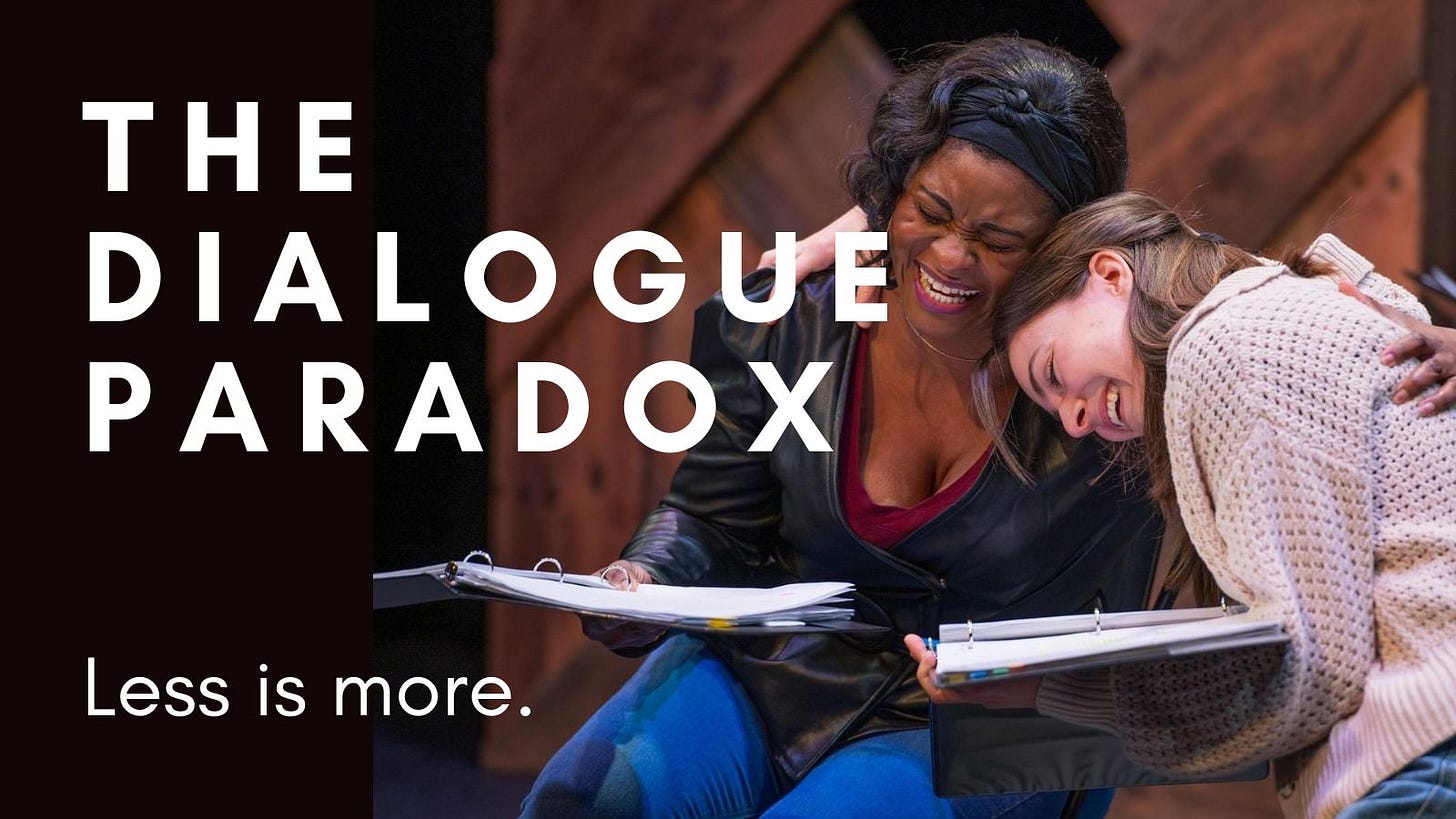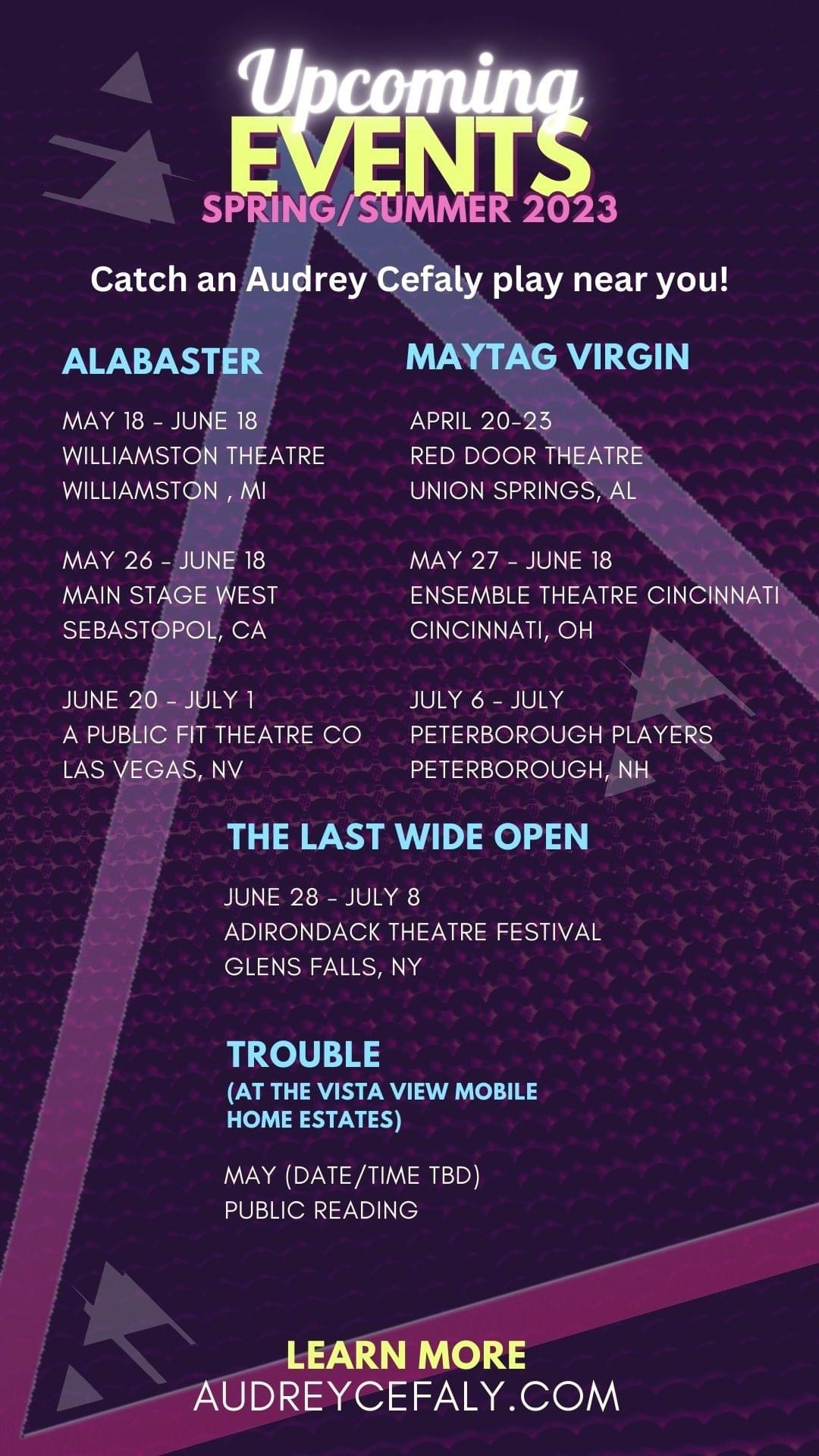Playwrights must go through a ruthless distillation process, weeding out anything in the manuscript that does not belong… anything that might drain the life out of a moment or a scene. It may be generally understood that in playwriting, economy builds tension. But it also has an added benefit: it creates options.
When you strip away the noise, magical things begin to happen. It is a paradox: the fewer words you give an actor, the more choices they have.
Strip your dialogue to the bone: free your actor from the exacting sentence while gaining the gift of tension in return.
PREVIOUS ARTICLES BY AUDREY CEFALY
52 Vocabulary Words for Playwrights
A collection of weird and unusual words for the things we do as playwrights.10 Things Playwrights Wish Their Actors Understood
A love letterTo Speak or Not to Speak?
4 Ways to Create Indelible Non-Speaking Roles for the Stage21 Things I Know About Playwriting
I wrote my first play twenty years ago. I wrote my second play one year later. Here are 21 things I learned in the year between the two.
LEAN MORE ABOUT AUDREY
Visit my website for more about me and the work I do!
QUICK LINKS TO MY PLAYS
Audrey Cefaly's plays (Alabaster, Maytag Virgin, The Gulf, The Last Wide Open, Trouble) have garnered the Lammy Award, the Calicchio Prize, the Edgerton, and a Pulitzer nomination. Her works have been produced at Signature Theatre, Cincinnati Playhouse, Barter Theatre, Merrimack Rep, Florida Studio, Florida Rep, Gulfshore Playhouse, and countless others. Cefaly is a Dramatist Guild Foundation "Traveling Master," an Arena Stage playwright cohort, and a recipient of the Walter E. Dakin Fellowship from the Sewanee Writers Conference. She is published by Concord Theatricals.






